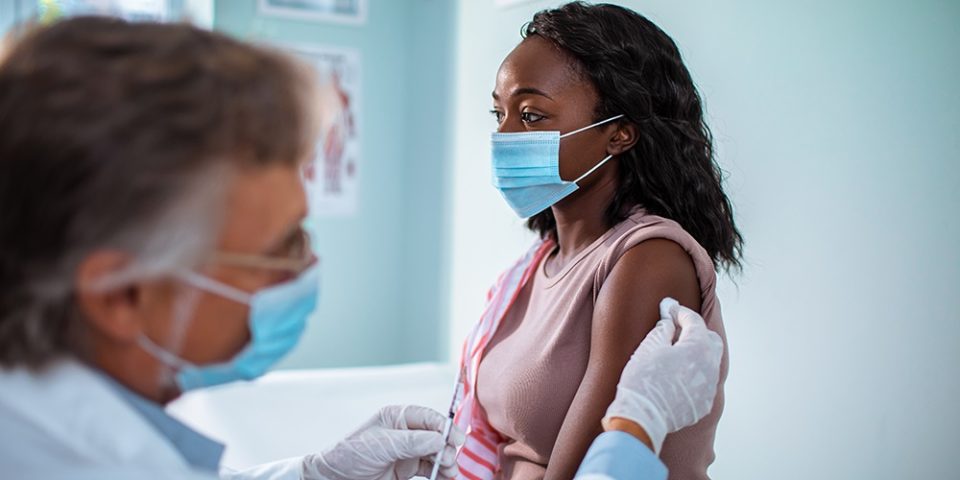Minorities and the COVID-19 vaccine
Now that a COVID-19 vaccine is available, we have reached a key point that could help end the pandemic. But there has been concern, especially among minorities, that the vaccine is not safe.
Can we trust it? How was it developed so quickly? Who should get it first? Should I get it? Are you going to get it? Jaqui Jones, MD, addressed these concerns and offered advice.
As a minority, should you be skeptical of the COVID-19 vaccine?
“There is no reason to be skeptical of this vaccine,” said Dr. Jones. “Large groups of minority doctors and other healthcare professionals are constantly communicating with each other. We are having a lot of conversations and sharing data about the research around the COVID-19 virus and vaccine. Sharing what we know with each other, to share it with you.”
Dr. Jones said she understands the skepticism among minority communities, because of clinical experiments that occurred in the past – specifically, the Tuskegee experiments. “What happened with the Tuskegee trials is not the same thing as presenting a vaccine to protect us from COVID-19. The tragedy in the Tuskegee experiments was they discovered earlier on that there was a treatment, but they withheld that treatment to observe a disease process. Some patients have told me they think people were injected with the disease, but that is not what happened. From that tragedy came review committees and boards that are now responsible for making sure safety guidelines are in place, and making sure we inform people about the studies they are participating in.”
Dr. Jones said if you’re skeptical that means you need more information. “Having questions or concerns is fair. We can answer your questions so that you feel better about getting the vaccine.”
Is this vaccine too new to be trusted?
“Decades of finance, research and studies have gotten us to this moment,” said Dr. Jones. “We have used technology and information to our advantage against COVID-19 to develop this vaccine. The vaccine was not rushed in the name of the economy or for any other reason. It is backed by good science with over 30 years of research specific to this type of vaccine technology (mRNA). It’s not new. There has also been minority representation up and down the entire scientific spectrum throughout the journey to this vaccine.”
Would you recommend that minorities receive the COVID-19 vaccine?
Dr. Jones, who has received the vaccine herself, said the short answer to this question is yes. “In minority communities, we have high comorbidities. We came to the door at a deficit – with higher rates of diabetes, hypertension, morbid obesity, COPD, emphysema, smoking and alcohol use. We’ve been dealing with a lack of access to healthy food and safe places to exercise. All those things existed before COVID. And now more of us are dying at a higher rate from the virus.”
Long-term effects of COVID also continue for many people – shortness of breath, hair loss, memory loss, chronic cough, fatigue, and loss of taste and smell. “This can be life altering and disruptive,” said Dr. Jones. The continuing effects can impact whether people can do their jobs, they affect dynamics between family members, and they affect the daily enjoyment of life.
“I’ve had patients tell me what used to taste sweet now tastes like fish, and there’s nothing we can do to help that. COVID-19 is wide and broad in the symptoms and outcomes. This vaccine offers a way to prevent death, disease and potential long-term effects from the virus. When the opportunity presents itself for you to receive the vaccine, do the thing that will allow you to go on and live a healthy life. When it is your turn, get your vaccine,” said Dr. Jones.
Have questions about the COVID-19 vaccine?
Find answers to frequently asked questions about the COVID-19 vaccine, including how to get the shot.


